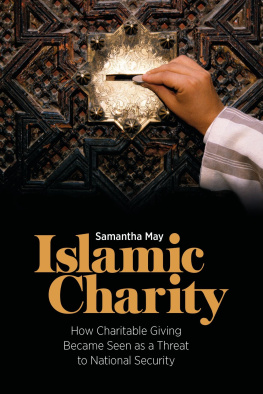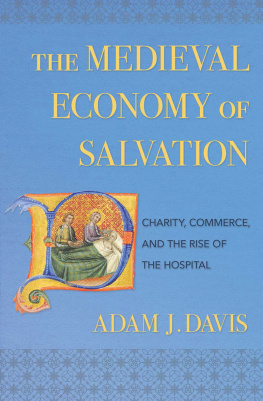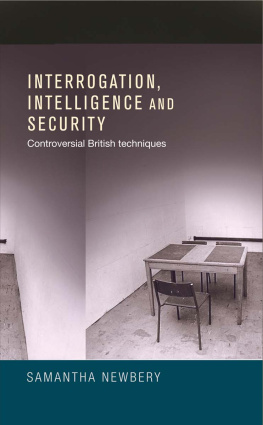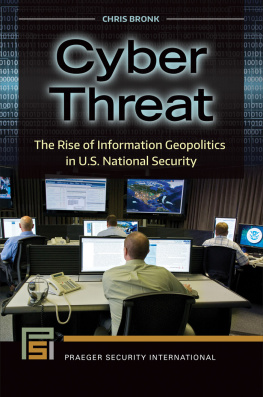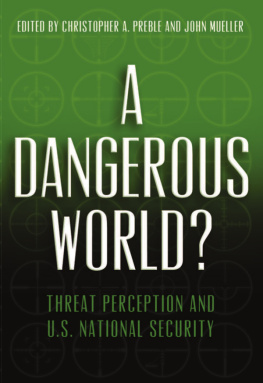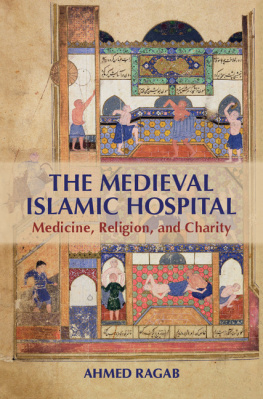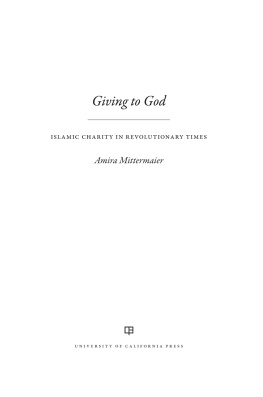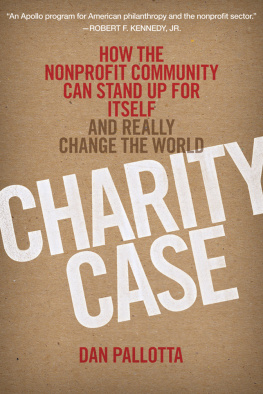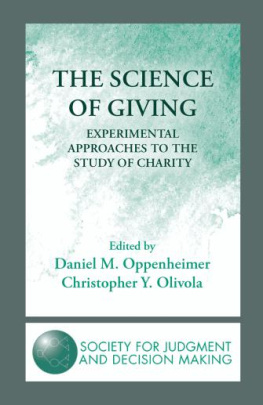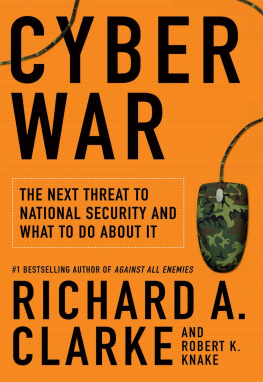Islamic Charity
Islamic Charity
How Charitable Giving Became Seen as a Threat to National Security
Samantha May
Contents
At the time of writing, the world is grappling with the new Covid-19 virus. Although the evaluation stage is early, the UK appears to have one of the highest death rates in Europe and one of the highest death rates per capita in the world. Although it is oft repeated that we are all in this together, it appears that we are not equally together: we are all weathering the same storm but with different access to shelter (and none).
The emergence of Covid-19 has dramatically affected the charitable sector as demand for services rise, while financial, volunteer and material resources dwindle. In the UK, Muslim volunteers, individuals and charities have been some of the most proactive and among the first responders to the evolving crisis. Lucas Faure has found a similar trend in France where French Muslim charities have been among the first organizations to respond to the crisis and are at the heart of mitigation efforts. Faure has argued that the national implications for the renewed vigour and visibility of the Muslim charitable sector challenge negative stereotypes on Islam in France and potentially reshapes their relations with public authorities in the provision of welfare services (: 3). While facing a barrage of unprecedented challenges, Muslim charities have an opportunity to showcase the true value of their services, previously under-recognized, and the shared values of charity and humanitarian work with wider society.
In a report released in August 2020, the umbrella organization the Muslim Charities Forum identified 194 Muslim charities responding to the Covid crisis in the UK (: 8).
It is too early to make any firm conclusions, but it is likely that the Muslim charitable sector will have additional challenges to endure. First, it is becoming increasingly clear ). Second, as this monograph will argue, the Muslim charitable sector is particularly susceptible to allegations of charitable misuse, extremism and terrorist financing which is not becoming lessened in the face of the pandemic. Continued counter-terror finance (CTF) measures are likely to decrease the efficiency and ability of Muslim charities to respond to our global crisis. In the era of Covid-19, hampering the efficiency and ability of Muslim charitable distributions will likely affect donations being sent not only overseas but within the UK itself as economic recession and unemployment manifest.
In evidence of Faures suggestion that Muslim charities and humanitarian organizations during the crisis have increased their public visibility and their active partnerships with other associations ().
Despite the various ongoing challenges, Muslim charitable givers have also responded to humanitarian need abroad and within the UK. The holy month of Ramadan occurred during the full lockdown in the UK. Typically, mosques and Islamic centres across the UK would utilize the month of Ramadan to collect zakat (obligatory alms) from donors via mosques and face-to-face fundraising. The year 2020 witnessed a very different Ramadan where door-to-door charitable collections became impossible and online donations to charities or online money transfers were the only practical option. While undoubtedly smallto-medium charities that lacked an online presence will have seen a shortfall in fundraising in comparison to previous years, other charities with a strong online presence and online donations have been far more resilient. For instance, Islamic Relief is reported to have collected a 30 per cent : 10).
Covid-19 has forced many to contemplate our global political and economic norms with new discussions regarding the role of the s tate in welfare and service provision. The emergence of Covid-19 means that we cannot return to the norms of old. Now is perhaps exactly the time we should be reflecting and seriously considering alternative political, economic and ethical paradigms rather than demonizing them offhand as contrary to fundamental British values.
Attempting to monitor and control the spread of Covid-19, many states, including the UK, are struggling to devise track and trace systems with much of the technology being re-appropriated from counter-terror surveillance mechanisms. States have utilized the opportunity to expand further into our everyday lives extending their grip on the securitization of the mundane. Track and trace systems are (at the time of writing) thought to be crucial in controlling and isolating Covid-19 cases, but scepticism over the governments use of data collected has already raised debates. Suspicion of how the government will utilize the data, who the data will be shared with and for what purpose, threatens to undermine voluntary uptake on track and trace techniques. Nearly two decades of intrusive surveillance, particularly on Muslim and Asian communities in the UK, has potentially increased mistrust between the British government and segments within British society, resulting in apprehension of new track and trace systems. As populations across the globe face grief, shock and uncertainty, the securitization of the mundane is increasing substantially as attentions are diverted to the immediate crisis. It is not just Muslim charities and Muslim individuals who are monitored and surveyed we are all under the states gaze. Our ongoing crisis has the potential to recast Muslim charitable giving in the UK beyond suspicion and mistrust towards a common agenda for the common good for Muslims and non-Muslims alike.
Enormous gratitude to all those who participated in this research giving time and trust. This work could not have been possible without you. Indebtedness is extended to all who have offered comments and critique, especially the staff and students at the University of Aberdeen, blind reviewers and my amigo. All remaining errors are entirely my own.
Appreciation to the Leverhulme Trust project entitled Zakat in the UK: Islamic Giving, Citizenship and Government Policy (Grant F-2015-331) and the British Academy for funding this research Identifying Political and Transnational Dimensions of Pious Alms Giving ( Zakat ) in the United Kingdom (BA Grant number SG122527).
I dedicate this book to my family by blood and by choice I love you all beyond measure.
Charity Commission | Charity Commission for England and Wales |
CTF | Counter-terror financing |
FATF | Financial Action Task Force |
FBOs | Faith-based organizations |
FWoT | Financial War on Terror |
NGOs | Non-governmental organizations |
OSCR | Office of the Scottish Charity Regulator |
SWIFT | The Society for Worldwide Interbank Financial Telecommunications |
USA PATRIOT Act | acronym for Uniting and Strengthening America by Providing Appropriate Tools Required to Intercept and Obstruct Terrorism |
WoT | War on Terror |
Islam has become the new folk devil (Salgado-Pottier, ). Since 9/11 and the global War on Terror (WoT), practitioners of Islam have been scrutinized and surveyed in suspicion of disloyalty and as potential disrupters of national social cohesion. In this climate, even seemingly benign, altruistic practices such as charity are viewed as potential threats to national security and have increasingly become subject to counter-terrorism policies. This is evidenced in the words of President Bush, instigator of the Financial War on Terror (FWoT), when he iterated that


